

On a typical Friday morning, the coastal suburb of Seacliff, South Australia, is a hive of activity. Dogs chase balls up and down the beach; children splash in the shallows; windsurfers glide across the ocean’s sparkling surface and customers spill out from local cafes. But since March 2025, Seacliff has been unusually quiet. Like so many beaches along the South Australian coastline, it’s been blanketed by an algal bloom that's toxic to marine life, turning underwater ecosystems into barren wastelands as schools of dead fish wash up on the shore.
“The impacts on the coast have been significant,” says Anne Knight, the former owner of Seacliff’s popular Pirate Cat Cafe. “People aren't down and visiting as much. The regular customers are flatter. We're all feeling the effects of the changes to the sea.
“It really affects us. Not just financially, but being here, surrounded by it all the time and having these discussions – it's hard on people.”
While South Australia has dealt with algal blooms before, the size and toxicity of this one, which is of the Karenia species, is unprecedented. It’s an ecological disaster – authorities have recorded up to 57,000 fatalities across 550 marine species as of October, but experts predict that number to be much higher – as well as an economic one, as local businesses that depend on the ocean to operate, from cafes to tourism operators and fisheries, struggle to make ends meet.
But the algal bloom is also having a significant impact on the mental health and wellbeing of those in affected communities, as people are spending more time indoors because they’re fearful of being near the water.
“It’s the feeling the water isn’t a place you go to relax anymore. It’s a place you go to mourn. We see the negative effects. And on the warmer days, going into summer, we're all concerned about how much worse the effects are going to be,” says Anne.
“I usually love the smell of the beach, but now, since there's dead fish in and out of the water, it doesn't smell that good,” says Maria, an 11-year-old student who visits the beach with her family most Sundays. “We're a bit worried [because] we're not sure how we're going to stop it, and how it's going to impact our lives.”
“It's just—it's sad,” adds Anne. “Everything about it is sad.”
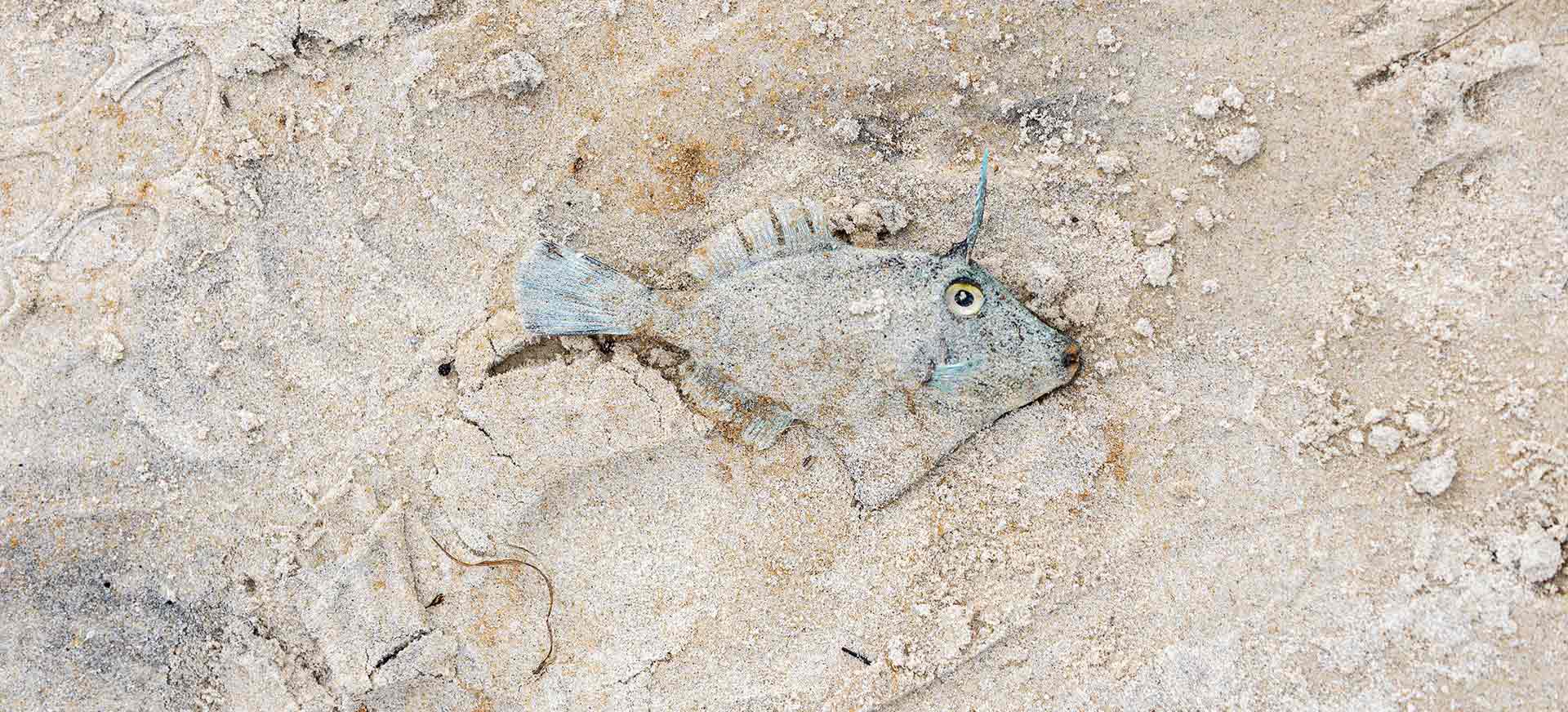
With staff and volunteers living and working in communities across the state, Australian Red Cross has been attending government-run information forums on the algal bloom, listening to community members as they share their concerns.
From business owners that fear for their livelihoods to older people who feel more socially isolated because they’ve stopped visiting the beach to connect with others, the message is clear: devastation caused by the algal bloom is having a negative impact on the wellbeing of community members, and there’s an urgent need for greater mental health support for those affected.
“It's having significant wellbeing impacts on our communities,” says Senior State Manager of Programs (South Australia) at Australian Red Cross Mary Hajistassi, whose team has been delivering psychological first aid to people at a number of forums. “People are seeing dead fish washed up onto the shore, and when they see that regularly, it's causing a lot of anxiety and concern. It's impacting people's ability to connect socially, as communities are no longer able to do the things that support their mental wellbeing."
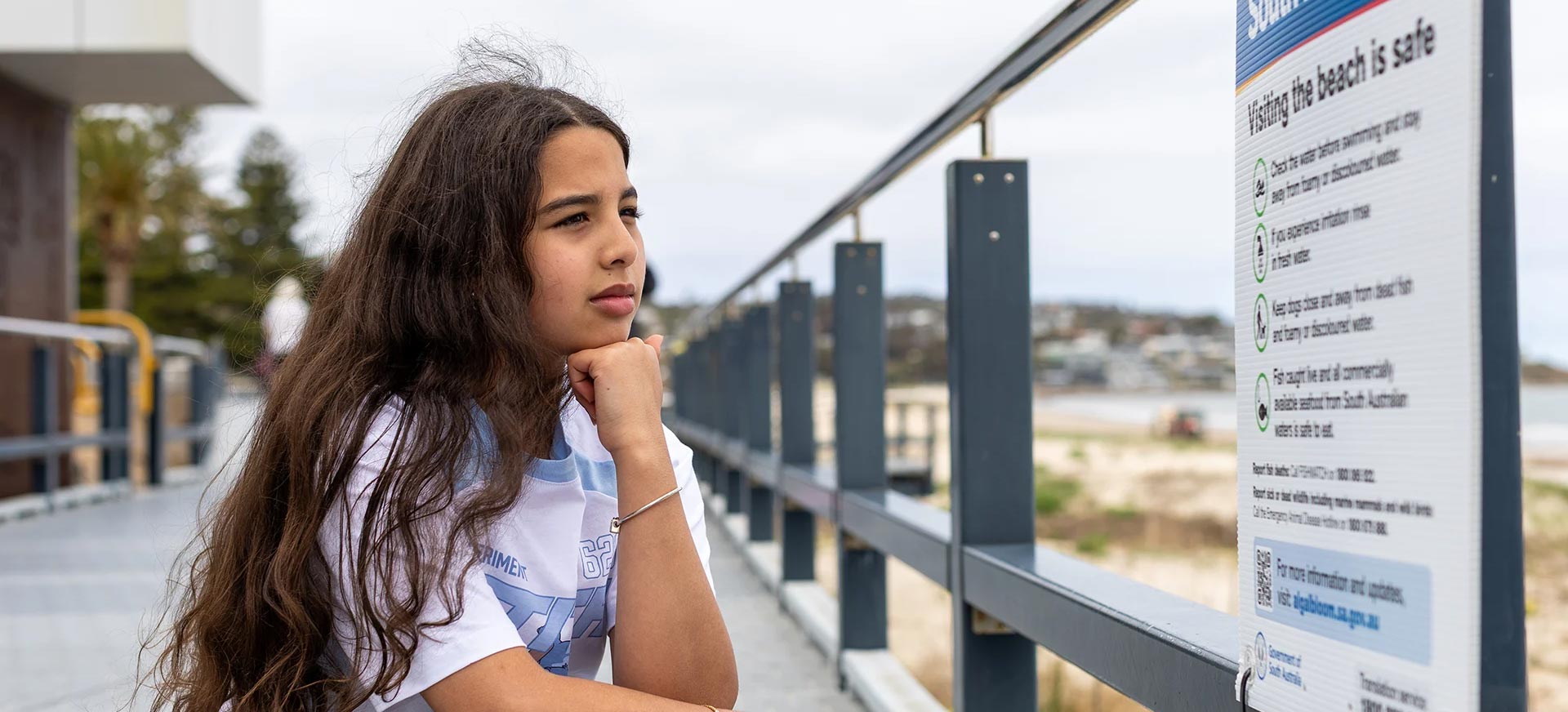
Jai is a surfer, swimmer and Mid Coast local whose life revolves around the water. He’s one of many people that’s continued to swim despite the algal bloom, because for him, the mental health benefits of getting in the water outweigh the risk of feeling unwell after a swim.
“Sometimes you can have a little algal bloom hangover, which is a flu-like symptom, and it tends to last half a day or 24 hours,” he explains. “It's not a nice feeling. It's a terrible feeling. But I continue to do it because it's where I live and it's a part of my everyday life. You crave it.”
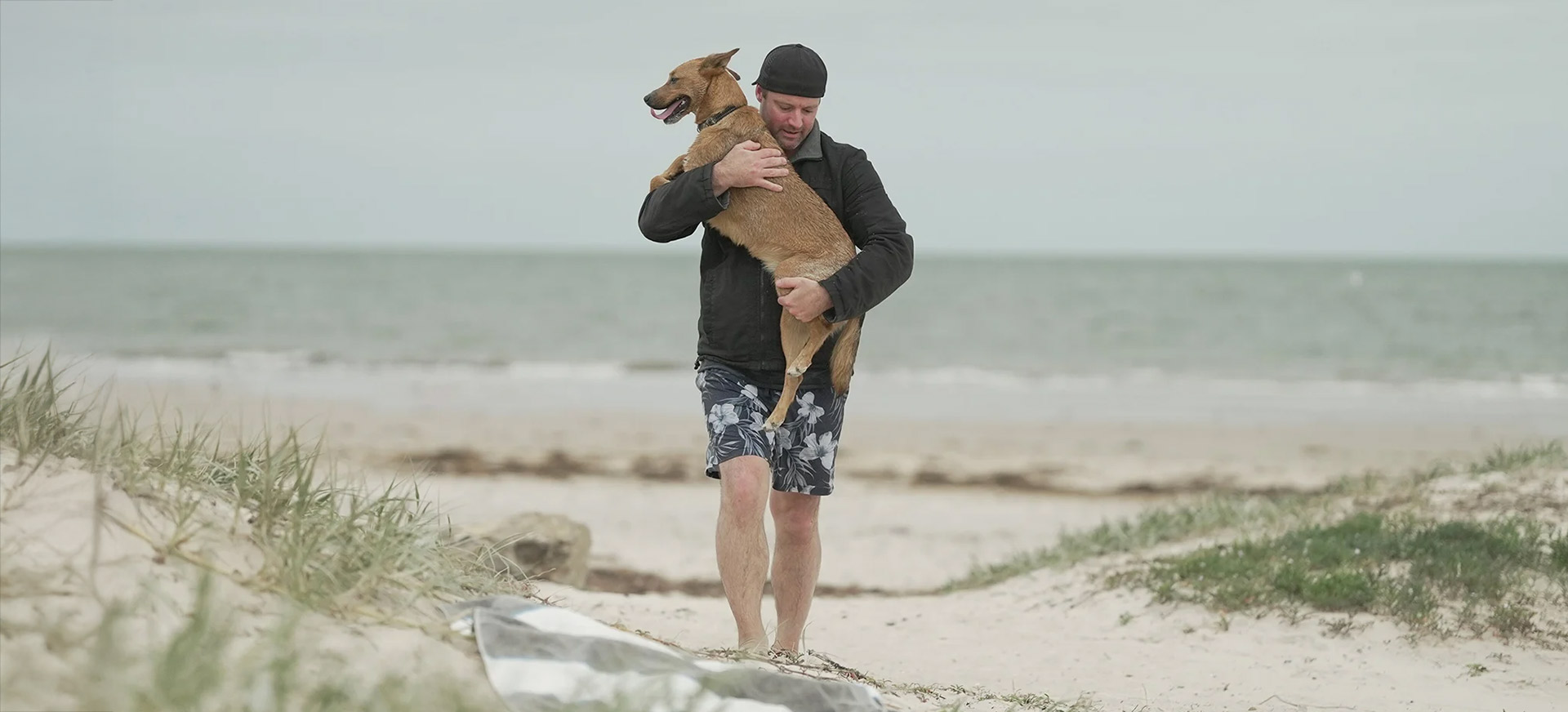
“We have a history at Australian Red Cross of being able to understand the psychosocial impacts of disaster events, and we know that looking after people’s wellbeing is critical to building resilient communities,” says Sarah Strathearn, Director of South Australia at Australian Red Cross.
“Evidence shows that people who have prepared and built resilience are going to be able to respond and recover much quicker and more effectively to disasters, and the impacts they have on our lives.”
As a trusted, neutral partner in disaster response and recovery, Australian Red Cross is urging the government to recognise the vast humanitarian impact of the algal bloom. We are also advocating for greater mental health support to be included in the response. Our submission to the ongoing federal government inquiry into the algal bloom calls for a response that prioritises wellbeing alongside environmental and economic recovery, while ensuring the necessary resources and services are accessible to those in need.
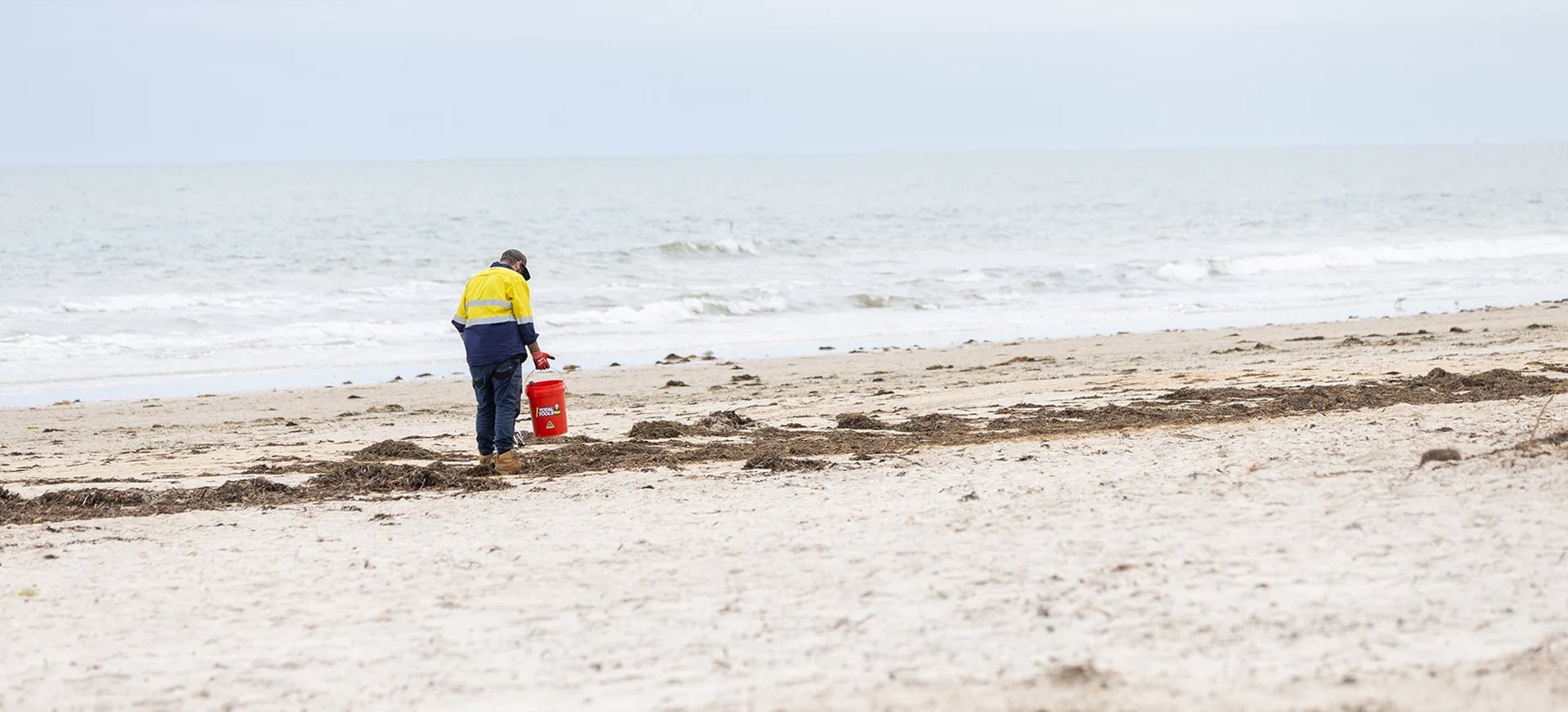
Sarah Strathearn emphasises the importance of a response that is informed by what communities are saying. “There's a real opportunity for us to come together, work together, collaborate and deal with this uncertainty better by being united and connected with each other,” she says. “And that's what Australian Red Cross is advocating for.”
At community forums, we continue to be there for people whose livelihoods and mental health have been affected by the crisis, so they can feel seen, heard, and supported.
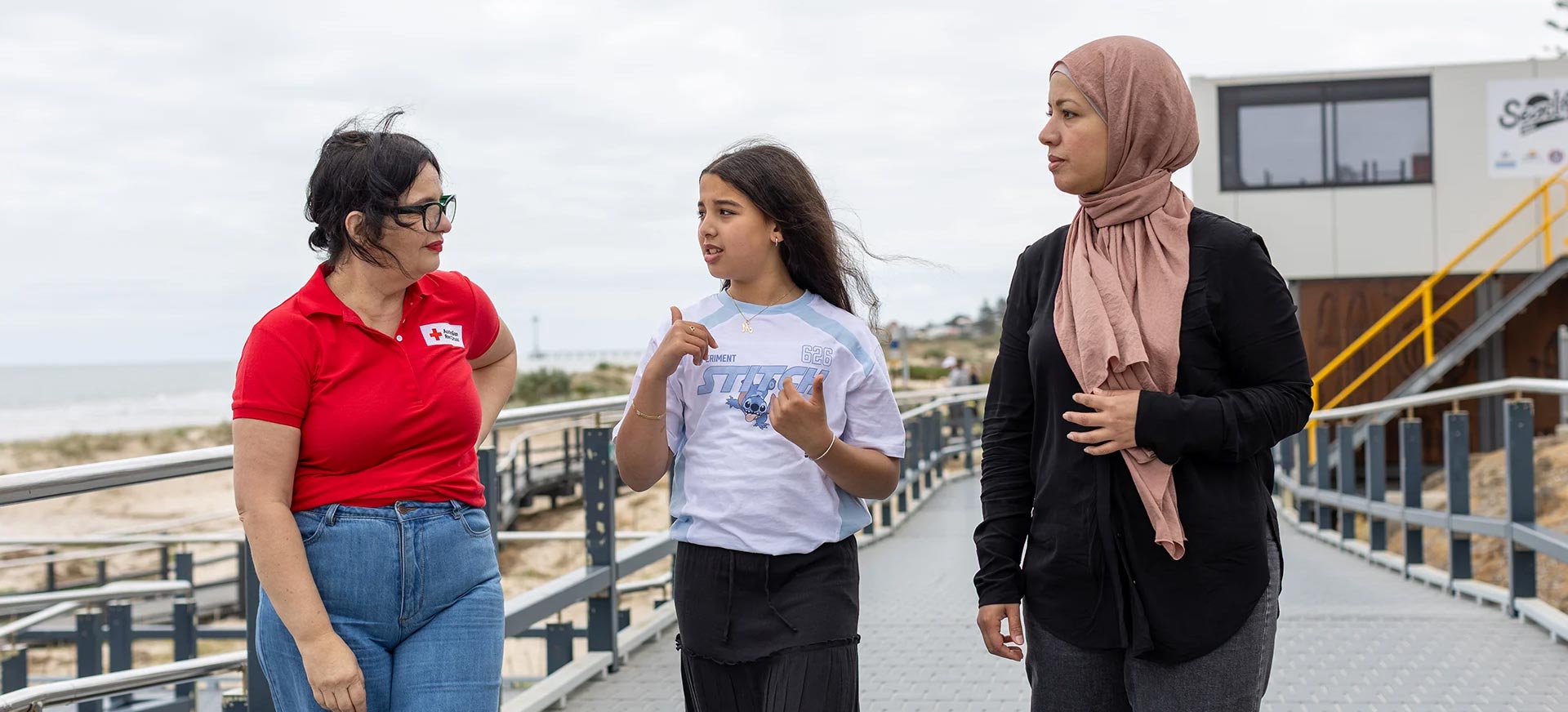
Since speaking to Australian Red Cross in early October 2025, Anne and her husband have sold their cafe. The decision was financial, with trade remaining lower than usual since the arrival of the algal bloom. As the crisis continues, Anne hopes that greater support will be available to those affected.
“Having a place for a community to talk about their feelings, to realize they're not alone – anything that helps to maintain a sense of well-being in the community is going to build community resilience and help people to maintain strength whilst all of the effects are ongoing,” says Anne.
“Talking about the algal bloom with my family helps me feel like it's going to end and it's not going to be forever,” echoes Maria. "It makes me feel like eventually, I’m going to be able to go to the beach again.”
Red Cross pays our respects to the Aboriginal and Torres Strait Islander custodians of the country where we work, and to Elders, past, present and emerging.
Learn about our Reconciliation Action Plan and how we can all make reconciliation real.
This website may contain the images, voices or names of people who have passed away.


© Australian Red Cross 2026. ABN 50 169 561 394
